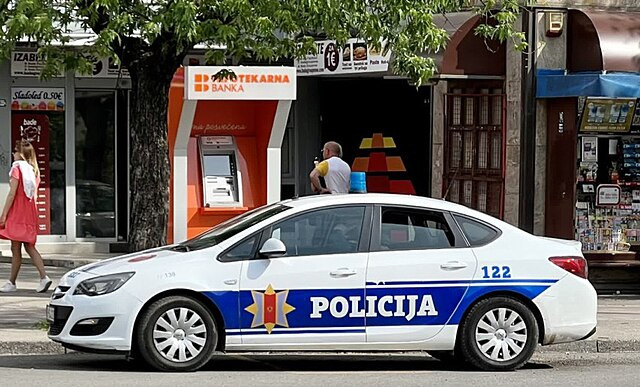A gunman in Montenegro killed 10 people, including two children, in a tragic mass shooting that has left the nation in shock. The attacker, identified as 45-year-old Aleksandar Martinović, launched a deadly rampage in the small town of Cetinje on Wednesday before taking his own life after being cornered by police. Authorities described the incident as one of the most devastating in Montenegro's recent history.
The violence began in a restaurant in Cetinje, located about 38 kilometers west of the capital, Podgorica. According to police, Martinović fatally shot four individuals following an argument. He then moved to three other locations, killing six more people, including two children. Four additional victims remain hospitalized with life-threatening injuries. Interior Minister Danilo Saranović confirmed that Martinović attempted suicide when police closed in, succumbing to his injuries while being transported to the hospital.
Prime Minister Milojko Spajić declared three days of national mourning, calling the tragedy a "terrible event" that has shaken the country to its core. President Jakov Milatović expressed his deep sorrow, stating he was "horrified" by the senseless loss of life. The attacker, who had a history of illegal weapons possession, was reportedly heavily intoxicated during the rampage, according to police. Authorities ruled out any links to organized crime, instead attributing the violence to personal grievances.
Man kills 10 people - including 2 children - in mass shooting in Montenegro, says local police
Suspect remains at large and residents in town of Cetinje have been told to stay indoors pic.twitter.com/uNXdAfHFO1 — RT (@RT_com) January 1, 2025
Witnesses described the harrowing scenes in Cetinje as chaos erupted. Residents recounted hearing gunshots and seeing people fleeing in panic. Emergency responders worked tirelessly to assist the injured and secure the area. The attack marks the second mass shooting in Cetinje in recent years, following a 2022 incident that left 11 people dead.
Despite Montenegro's strict gun laws, the Western Balkans remains awash with weapons, many dating back to the conflicts of the 1990s. The prevalence of firearms in the region has fueled concerns about public safety, with officials calling for stronger measures to prevent similar tragedies. Prime Minister Spajić has suggested tightening the criteria for gun ownership, including the possibility of banning firearms altogether.
Martinović's actions have drawn condemnation across the country. Police Director Lazar Šćepanović confirmed that the gunman was heavily intoxicated and described the attack as an isolated act of violence stemming from personal disputes. The incident has also reignited debates about Montenegro's gun culture and the effectiveness of its firearm regulations.
Flags flew at half-mast as Montenegro began its official mourning period. Vigils were held in Cetinje, where the community came together to grieve the loss of life and offer support to the survivors. International leaders from neighboring Balkan nations extended their condolences, emphasizing the importance of addressing the root causes of violence in the region.




